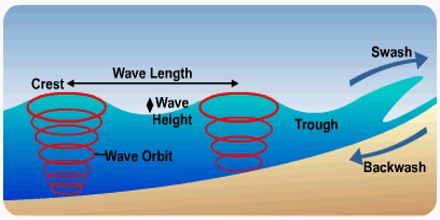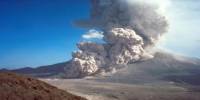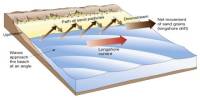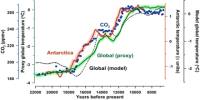Coastal processes are the set of mechanisms that operate along a coastline, bringing about various combinations of erosion and deposition. The land water interface along the coastline is always in a highly dynamic state and nature works towards maintaining an equilibrium condition. The energy due to tide, waves, wind and currents is constantly working in the coastal zone. Dissipation of energy (due to tide, wind, waves and current) is often provided by the beaches, mudflats, marshes and mangroves. Human use of the coasts also requires space and herein lays the conflict, which results in unstable coastal systems. This induces coastal erosion, sediment transport and accretion.
Presentation on Coastal Processes
















